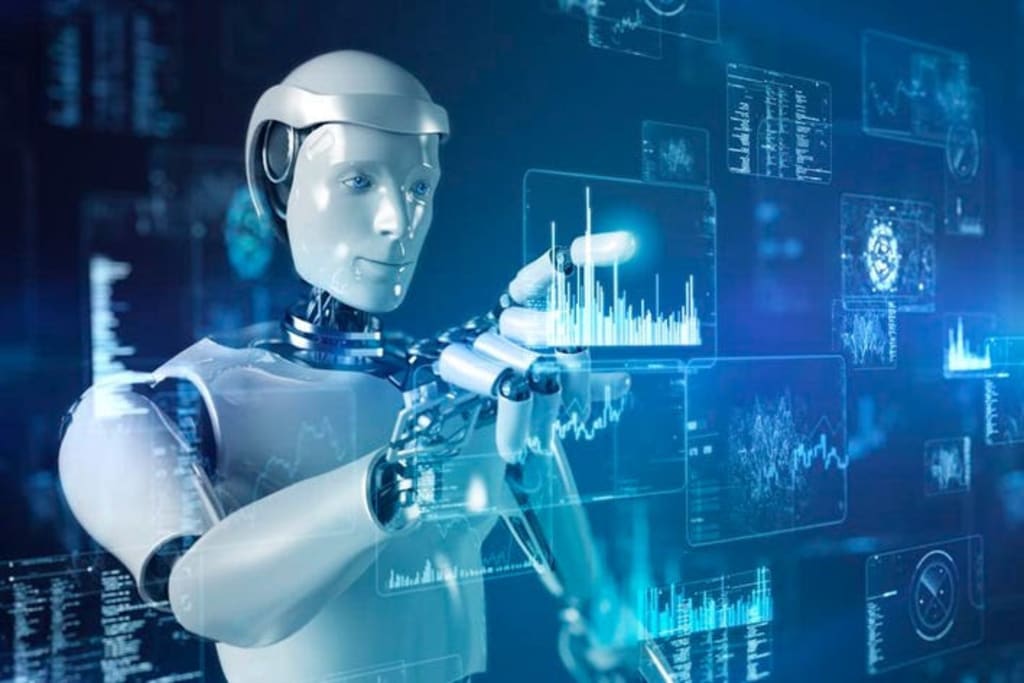About Artificial Intelligence AI
What you need to know about Artificial Intelligence AI

AI stands for artificial intelligence, which refers to the use of computers to perform tasks that typically require human-like intelligence, such as visual perception, speech recognition, decision-making, and language translation. AI is a rapidly growing field and it is used in a variety of applications, such as self-driving cars, virtual assistants, recommendation systems, fraud detection, and medical diagnosis. AI technologies include machine learning, deep learning, natural language processing, and computer vision, among others.
Artificial intelligence, or AI, is the ability of machines or computer programs to perform tasks that typically require human intelligence, such as visual perception, speech recognition, decision-making, and language translation. AI is achieved through the use of algorithms and mathematical models that are designed to process and analyze large amounts of data. AI has many applications in various fields such as healthcare, finance, transportation, and entertainment, among others. AI is expected to revolutionize many industries and improve our daily lives in numerous ways.
AI is an interdisciplinary field that combines computer science, engineering, mathematics, psychology, linguistics, neuroscience, and philosophy. It has rapidly progressed in recent years due to the availability of large amounts of data, improvements in machine learning algorithms, and advancements in computational power.
There are many applications of AI, ranging from self-driving cars and virtual assistants to fraud detection and medical diagnosis. AI is also used in scientific research and has important implications for fields such as robotics, cybersecurity, and natural language processing.
There are different types of AI, including narrow or weak AI, which is designed to perform specific tasks, and general or strong AI, which has the ability to perform any intellectual task that a human can. At present, most AI systems are narrow or weak AI, but there is ongoing research to develop more advanced forms of AI.
Overall, AI has the potential to revolutionize many aspects of society, although there are also concerns about its impact on employment, privacy, and security.
AI is a rapidly growing field that aims to create intelligent machines that can learn, reason, and adapt like humans. Some of the specific techniques used in AI include machine learning, natural language processing, computer vision, and robotics.
Machine learning is the foundational technology of AI, which involves training algorithms with large amounts of data to identify patterns and make predictions. Natural language processing is used to process and interpret human language, allowing machines to understand and generate text or speech. Computer vision is used to interpret visual information from the world, allowing machines to perceive and react to surroundings. Robotics involves creating machines that can complete physical tasks.
There are many real-world applications of AI, including virtual assistants, self-driving cars, fraud detection, medical diagnosis, and personalized marketing. As AI continues to develop and advance, it has the potential to transform many aspects of our lives. However, there are also concerns about the potential risks and ethical considerations of AI, such as bias, job displacement, and privacy concerns.
Here are some more facts about AI:
- AI is a rapidly growing field that aims to create intelligent machines that can learn, reason, and adapt like humans.
- Some of the specific techniques used in AI include machine learning, natural language processing, computer vision, and robotics.
- The development of AI has applications in a wide range of fields, including healthcare, finance, transportation, and entertainment.
- AI has the potential to revolutionize society and have a profound impact on our daily lives, but there are also concerns about the ethical and societal implications of its development and use.
- Some of the current challenges in AI include improving data quality and diversity, developing systems that can explain their decisions, and ensuring that AI systems are fair and unbiased.





Comments
There are no comments for this story
Be the first to respond and start the conversation.